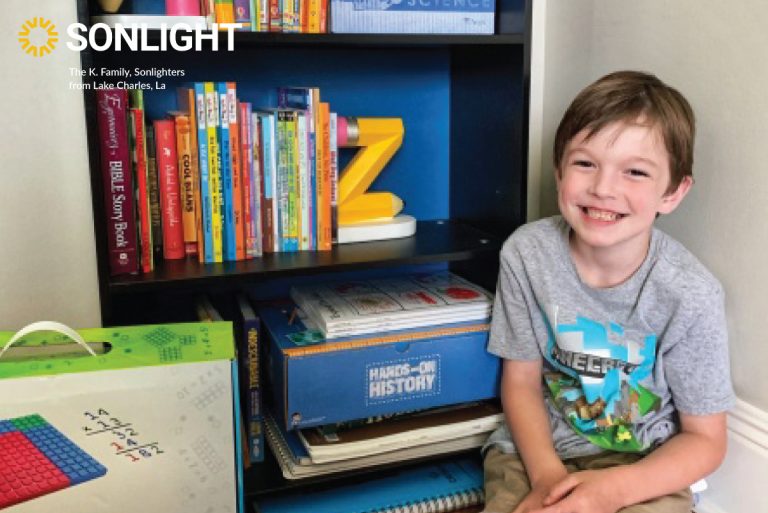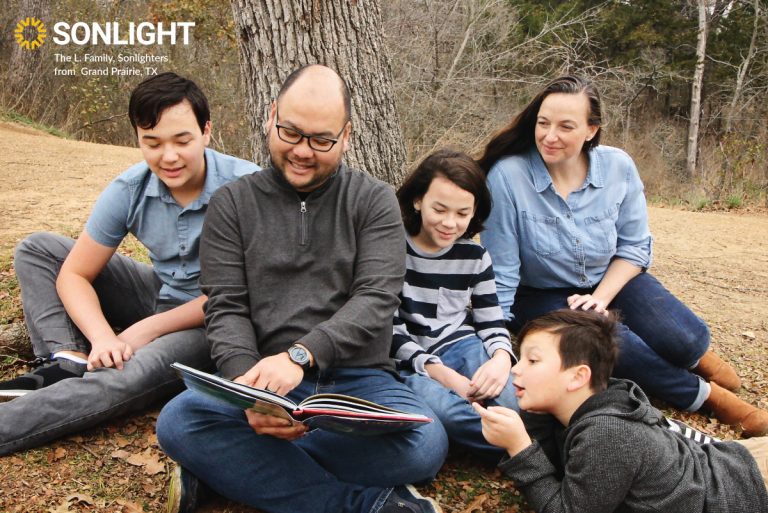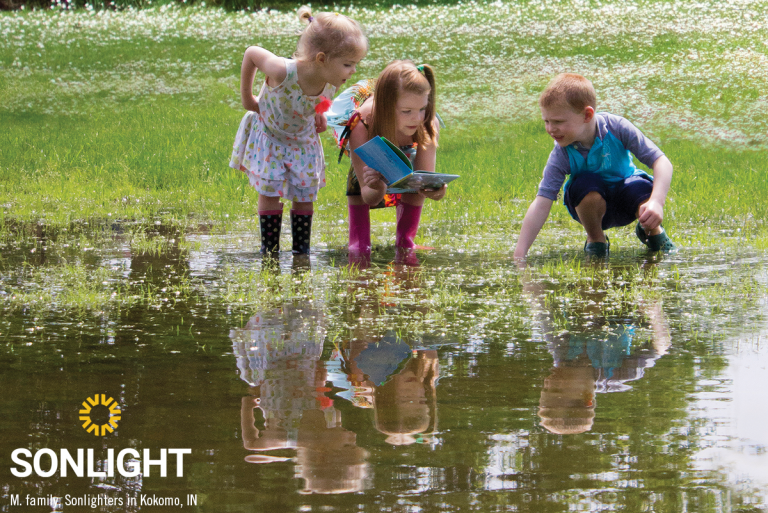You’ve probably heard rumblings about homeschooling for a while. Your best friend’s sister homeschools her children; your husband’s work colleague homeschools his children. The idea sounds intriguing but you are asking yourself...How does homeschooling work?
I wondered the same thing before we started on our homeschooling journey. I had so many questions floating around that it was hard for me to even verbalize them. At that time, I didn’t know where to start, and I didn’t personally know anyone to ask. So, I started on an internet quest to find the answers to all my questions.
If this sounds familiar, let me assure you that you are in the right place. Let’s talk about all the ins and outs of homeschooling.

How Much Does It Cost to Homeschool Your Child?
Let’s dive right in with the question that everyone wants to know...how much does it cost? This is kind of a tough question to answer because every family is different.
There is no flat fee for homeschooling your children. However, you need to know that you may not have access to the benefits from your taxpayer dollars in the public school system after choosing to homeschool. Some states make public school resources available to homeschoolers and some do not. It depends on the state laws.
Once you decide to homeschool, most of your costs will depend on the curriculum that you choose to use. The Homeschool Legal Defense Association (HSLDA) estimates that most families spend between $300-$600 per child per year. Those stats hold pretty true in my family. When I was new to homeschooling, I remember thinking that it seemed like a lot of money; however, once we got started with our first year of homeschooling, I realized that I was actually saving money compared to sending my kids to public school.
First of all, my child no longer desired every new toy or every pair of super-cool, must-have sneakers that he saw the other kids wearing. Also, I found that the amount of money I was spending on school fundraisers the previous year was more than I spent on a whole year’s worth of curriculum! Once we put it in perspective, we were getting quite the bargain as homeschoolers. While cost is certainly something to consider, lots of families find that homeschooling actually saves money in the long run.
What Is Homeschooling? How Does It Work?
Parents who homeschool are taking on the primary responsibility for educating their own children. To begin homeschooling in most states, you’ll need to register with the Department of Education informing them that you will be responsible for your child’s education that year.
Be sure to check the HSLDA website or your state Department of Education website to find all the laws in your state and the contact person in your county. Some states are more relaxed on homeschooling laws, and some states have pretty strong laws concerning homeschool families. Either way, you need to know your state's laws.
Your next step is to choose your curriculum. This can be fun, but it can also be daunting. The good news is that there are so many great options now. Of course, the bad news is that there are SO many great options now!
Of course, I am a fan of Sonlight Curriculum, so I would highly recommend that you begin your search there. After you get your curriculum, set your start date, arm yourself with pencils and paper, and you’re ready to go!

Do Parents Get Paid for Homeschooling?
No matter how many times I’ve presented my children with a bill for my services, I have yet to receive their payment! Ha! I tease but not entirely.
I feel the rewards in my homeschooling journey have come in ways other than green paper. The endless kisses, years of bonding, and memories we’ve made together are absolutely priceless, and I wouldn’t trade those things for any amount of paper money.
However, while your kids are unlikely to make good on their bill for homeschooling services, you can earn a little extra money while you homeschool. Some parents find that if they open up their homeschools for a few more children to join in, they can earn extra money as a tutor. Of course, always check your state laws on homeschooling before beginning.
Some homeschool parents are able to find online work such as writing or consulting. For years, parents have been finding ways to make ends meet, and as a homeschool parent, you can do the same thing. There absolutely are opportunities out there for homeschool parents. You just need to look.
Is It Free to Be Homeschooled?
The expense of homeschooling typically depends on which curriculum you choose to use. Curriculum costs range from free to thousands of dollars. I would encourage you to be careful of both extremes. A completely free curriculum option will have you running ragged and guessing about whether you’re covering everything or not. Remember the adage: You get what you pay for. You’ll be rushing to the library every week just to find that the book you need is at another library or is already checked out. I’ve been there, and it’s rough. (And it's not hard to rack up late fines!)
On the other hand, spending thousands of dollars on a single curriculum is a lot to spend, and if that curriculum doesn’t teach itself, grade itself, and file itself, you might find that it’s just not worth it. In all my years with Sonlight, I’ve never felt that our curriculum cost was a waste. Long after our school year is finished, my kids read and reread their Sonlight books. I’ve also been thrilled at how many times I’ve reused our Sonlight curriculum. You get a lot more for your money when you choose a curriculum that can be passed down to siblings and used as entertainment and not just school.
What Are the Qualifications to Homeschool Your Child?
Again, always check your state laws before making the decision to homeschool, but in most states, you don’t have to have a teaching degree, or any degree for that matter, to homeschool your child. Some of the best teachers I know never went to college for teaching. I believe the only necessary qualifications for homeschooling should include a few things:
- A desire to glorify God in every word and action
- A deep love for your children
- A passion for being a lifelong learner
If you have these things, I am confident that you will be successful in homeschooling!
What Are the Disadvantages of Homeschooling?
Truthfully, after ten years of homeschooling, I find it tough to name any disadvantages. As I look back, I am 100% satisfied with the work God has done in our family through homeschooling. However, if I had to name a disadvantage, I would think back to our early years. Homeschooling wasn’t quite as widespread in our area as it is now, and of course, my children were very little. Sometimes, homeschooling was lonely for me as a mom. I remember when my husband arrived home after a long day at work, I would talk his ear off for the last six hours of the day!
As my children grew, I made more of an effort to connect with other homeschoolers, and I found quite the thriving little community. Sometimes, it takes a little work to find them, but homeschooling friends are out there if you’ll just keep looking. Socialization doesn’t have to be a disadvantage for homeschoolers. This reminds me that there are a number of myths circulating about homeschoolers. Most of these are really quite comical to us who are actually in the homeschool community. Read about one common myth here: What About Socialization?
How Many Hours a Day Should a Child Be Homeschooled?
Unfortunately, there’s no magic formula to how long each day of schooling should be. Remember, you’re not only homeschooling; your child is doing life with you. That alone is an education!
Consider our public school system. Children are there for 7-8 hours per day, but are all those hours instructional? Of course not. Although formal studies have not been done, there’s a fairly good consensus that between 2-3 hours of the day are totally wasted with transitions, classroom management, and breaks. One teacher estimates up to 5 hours of the day are wasted. That’s pretty shocking.
You can probably see why homeschoolers don’t need to worry so much about hours spent on schooling. Homeschoolers tend to think quality over quantity, depth over width. But because you probably still want know, on average younger elementary students will spend 2-3 hours homeschooling per day while an older elementary student will spend a little longer - 3 to 4 hours - homeschooling each day. High school will probably require more hours, even up to six or more hours per day, especially if your child is interested in advanced classes. But remember, when a student is done, he is DONE! There's no homework to do after hours.
Are Homeschooled Students Happier?
It is not right to make the grand generalization that homeschooled students are happier. However, I will tell you that my homeschool students are absolutely happier. My oldest son decided to try public school again when he got to junior high. He almost immediately began having migraines, which is not a normal thing for him. Although he did excellent in his classes, his health was failing under the long hours and tremendous pressure. Normally, he is a very talented basketball player, but we could see that he was struggling even in his beloved sports. As soon as he returned to homeschooling, the migraines disappeared, his basketball was better than ever, and he has declared that he never intends to go back. He loves homeschooling and sees the great value of it.
Not every child will feel the way my children do about homeschooling. Some children may miss friends. Some children love the fast pace of school. I do think, however, that the benefits far outweigh the few disadvantages for most families.
It certainly wouldn’t hurt to give it a try and see if your child is happier as a homeschooled student. You can read more stories of families who have found that homeschooling makes their children happier here.
What Do Homeschoolers Do All Day?
Homeschoolers generally have many vibrant days that are filled with field trips and job shadowing, but we also have a lot of routine days filled with the comfortable predictability of home.
One of the things I’ve loved about homeschooling is seeing my children flourish in extracurricular areas. My son who loves basketball devotes a lot of his extra time to getting extra shots up. My youngest son can tell you about the best way to start a fire in any type of weather. Both my boys love to play chess, so they have chess matches in their off time.
My oldest daughter is an artist. I’m not exaggerating when I say that she has talent! If she’s not doing her schoolwork, you’ll find her sewing, drawing, painting, or creating something from treasures she finds in our recycle bin. Our youngest daughter plays piano beautifully. Both our girls love to go to gymnastics, ride bikes, and play with the neighborhood kids. Some days, I take our children to the church to volunteer. Other days, we go to the library and the park. Being bored in a homeschool setting is unimaginable! There are just too many options, so many things we can do.
Of course, we all help with chores around the house. Chores are a full time job when you are at home the majority of the day. With everyone pitching in, the work doesn’t take long and there’s always plenty of time for independent time. I wrote more extensively on the logistics of a day in a family with multiple children.
How Long Is a Homeschool Year?
I will direct you once again to your state laws. Some states require homeschoolers to keep a log of how many days or hours they are “in school.” My state doesn’t require that.
Our Sonlight curriculum has a 36 week schedule, but the reality is that we usually end in 34 weeks. With Sonlight curriculum, we do all of our work in four days instead of five, so our Fridays are freed up for fun family activities or a good day of deep cleaning at home. As you can imagine, the latter isn’t as popular with my children, but it is necessary from time to time.
In most schools, students attend an average of 180 days in a school year, so if you are doing 36 weeks of curriculum, you are falling right in line with public schools. Because in a homeschool family everything is a learning opportunity, many homeschoolers would tell you that they school year-round. There is no right answer for how many days a child should attend school, however, so be sure to check with your state and use that as a starting point.
Does Homeschooling Have a Summer Break?
Ours certainly does! I think we are just as excited when May rolls around as the public school crowd! We love our lazy summers. However, even though we consider ourselves on summer break, there are some things we never stop. We don't stop doing Bible Study together and we never stop reading. We continue those two things throughout the summer because for us those are not school subjects, those are life habits. I hope to teach my children that we never stop studying the Bible (no matter how old we grow), and we never stop reading. Of course, we also do a lot of cooking (math!), a lot of field trips, and a lemonade stand or two each year, so there’s still a lot of learning going on in the summer around here.
How Many Days a Week Do You Homeschool?
As I already mentioned we use Sonlight's four-day curriculum option. Our family seems to be able to do better with a four-day schedule. We use our fifth day for fun activities, doctor’s appointments, and housework. There isn’t just one right way to homeschool though. Some families homeschool on the weekends, and some do their schoolwork in the evenings because parents work during the day. That’s the beauty homeschooling provides: it can happen anytime, anywhere.
How Does Homeschooling High School Work?
It’s really not that hard, believe it or not. First, check with your state laws on homeschooling. You’ll want to be sure to familiarize yourself with any laws pertaining specifically to high school and graduation requirements. Once you understand your state's laws, you will simply need to make a rough sketch or plan for your child’s high school years. Then, choose a curriculum and begin the transcript.
I highly recommend you keep a running transcript and update it each year. It’s much easier to fill in the classes as you go rather than wait until your child is ready to graduate. As you fill out the transcript, you’ll assign credits to each class depending on how many hours your child puts into the class. Homeschooling high school is completely doable.
Is Homeschooling Flexible?
Homeschooling is such a great way to educate children because it’s so flexible. As you read through these questions, you probably caught that theme. Aside from your state laws (be sure to follow those!) homeschooling is truly about doing what you believe is best for your child. After all, that's what teachers do!
Homeschooling is all your children doing life alongside you. This is the best preparation for adulthood, because they will have had years of front-row experience. You might feel like a fish out of water when you begin your homeschool journey, but before long you’ll feel like an old pro.
The Sonlight catalog is a great starting point for a parent investigating homeschooling. Not only can you browse the literature-based curriculum options, but you can also read helpful articles and get a fuller picture of what homeschooling could do for your family.












Thank for sharing this! I was contemplating on homeschooling my child or enrolling her with a live interactive class. Schools are closed in my country so thats the only option that we as of the moment. But i think im also leaning with the one with an interactive class for the socialization.